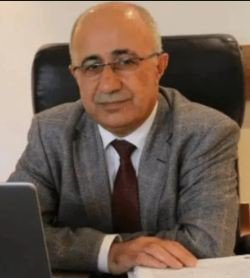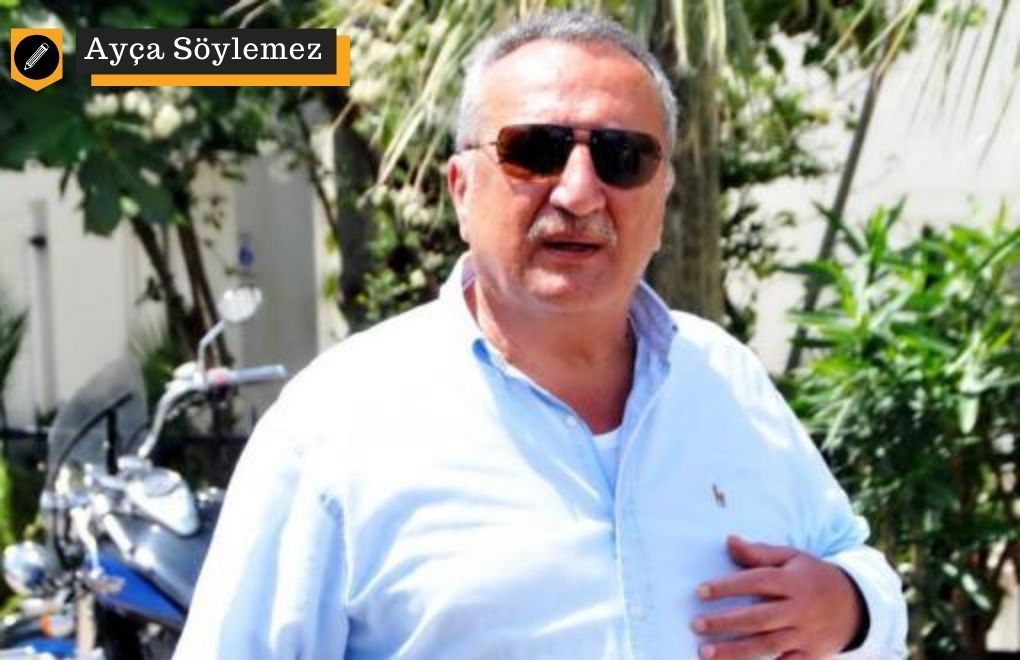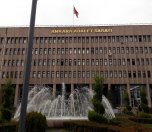Click to read the article in Turkish
Mehmet Ağar, a former Minister of Interior and Director General of Security, has recently hit the headlines due to the allegations made by Sedat Peker in his videos about the 'mafia-state relations' in Turkey.
While Turkey is debating the videos and allegations of Peker, who is accused of leading a criminal organization and currently abroad, the court of appeals has reversed the acquittals of 19 defendants in the trial over the enforced disappearance and arbitrary execution of 19 people.
CLICK - Ağar to stand trial again over 19 unidentified murders
In the trial known as "Ankara unidentified murders case", the subject matter was the murders of businesspersons and writers in the 1990s.
While 19 defendants, including Mehmet Ağar, were acquitted by the Ankara 1st Heavy Penal Court in the final hearing on December 13, 2019, the 1st Penal Chamber of the Ankara Regional Court of Justice, the court of appeals, reversed the acquittals on April 5, 2021. The court has concluded that the material evidence in the file was not sufficiently investigated.
'It was waved aside: "No evidence found"'
Former Diyarbakır Bar  Association Chair and an attorney for the aggrieved families Mehmet Emin Aktar has indicated that the Ankara 1st Heavy Penal Court wrote a 250-page justified ruling after acquitting the defendants and only 1.5 pages of the ruling presented a justification for the acquittal. "And that justification was that no evidence could be found," he has said:
Association Chair and an attorney for the aggrieved families Mehmet Emin Aktar has indicated that the Ankara 1st Heavy Penal Court wrote a 250-page justified ruling after acquitting the defendants and only 1.5 pages of the ruling presented a justification for the acquittal. "And that justification was that no evidence could be found," he has said:
"In fact, the evidence presented in that trial required penalization. However, the court put one statement under the other, it could not find a justification for the acquittals and gave such a ruling, solely saying, 'There is no evidence.' In the 250-page ruling, a justification was written in 1.5 pages, indicating that a ruling of acquittal was given because there was no evidence. And the court of appeals has concluded that this justification is insufficient."
'Defendants committed a crime against society'
Aktar has underlined that there are concerns about a possible violation of statutory limitations in the case. "If the charges are taken within the scope of crimes against humanity, the pressure can be removed. That was done in the case of the September 12, 1980 coup," he has noted.
Aktar has indicated that the defendants committed a crime by using the power of the state, acquired material and immaterial benefits in addition to this, thereby committing a crime against the society.
Welcoming the reversal of the court of appeals, Aktar has added, "However, instead of defining the rulings of acquittal as unlawful and indicating the necessity of conviction, it has solely given a ruling discussing the evidence and indicating the extension of the investigation."
In its related ruling of reversal, the court of appeals has stated that the local court overlooked the evidence and ruled that all pieces of evidence, ranging from the empty cases found during crime scene investigation to the origin of the weapons, shall be investigated. Moreover, the court has also ruled that the other evidence shall be investigated as well.
'I am not in charge of material store'
But, what were these pieces of evidence? Mehmet Emin Aktar has shared the following information about the case and the related evidence:
"The investigation began with the confessions of former special operations police officer Ayhan Çarkın in 2011. What he said was confirmed by the incidents and by the people that he had acted with in that period. First, as a result of a long investigation that began by grace of Mecit Baskın, an indictment was lodged in December 2013 and the trial began.
"Apart from Çarkın, several witnesses were heard in the trial, there was also material evidence. For instance, it was detected that one of the missing Uzi guns mentioned in the missing weapons incident was used in the murders of both Medet Serhat in İstanbul and Yusuf Ekinci in Ankara."
At the final hearing of the case, the court alleged that "the only evidence was the statements of Çarkın". Attorney Aktar objected to this and said: "In fact, it is certain that the same Uzi weapon was used in two separate murders, one in Ankara and the other in İstanbul. There is a ballistic examination, there is evidence." But the court did not take this objection into account.
As for Mehmet Ağar's statement about the missing weapons at court, he indifferently said the following about the issue: "I am not in charge of the material store, I am not responsible for it."
Former National Intelligence Department Head Mehmet Eymür also made a detailed statement. Attorney Aktar has indicated that in addition to all these, several other documents such as the Parliamentary report on the Susurluk incident, the report of the National Intelligence Organization (MİT) and Kutlu Savaş's report on Susurluk are also in the file.
'We will continue our legal struggle'
Mehmet Emin Aktar has added that he cannot look at the future of the trial optimistically, considering the general conjuncture:
"Political will is necessary to eliminate impunity. We cannot expect heroism from one-two judges. Even after this court of appeals ruling, the pro-government media has targeted the judges who gave the ruling.
"It is hard to be optimistic in such an atmosphere, but we will of course continue waging our legal struggle till the end."
What happened?
On December 20, 2013, a bill of indictment was prepared on the perpetrators who caused the death of businesspeople and writers in the 1990s.
According to the indictment, the defendants were accused of murdering Abdülmecit Baskın, Namık Erdoğan, Metin Vural, Recep Kuzucu, Behçet Cantürk, Savaş Buldan, Haci Karay, Adnan Yıldırım, İsmail Karaalioğlu, Yusuf Ekinci, Ömer Lutfi Topal, Hikmet Babataş, Medet Serhat, Feyzi Aslan, Lazem Esmaeılı, Asker Smıtko, Tarık Ümit, Salih Aslan and Faik Candan.
Defendants of the case were Mehmet Ağar, İbrahim Şahin, Korkut Eken, Ayhan Çarkın, Ayhan Akça, Ziya Bandırmalıoğlu, Ercan Ersoy, Ahmet Demirel, Ayhan Özkan, Seyfettin Lap, Enver Ulu, Uğur Şahin, Alper Tekdemir, Yusuf Yüksel, Abbas Semih Sueri, Lokman Külünk, Mahmut Yıldırım, Nurettin Güven, Muhsin Korman.
The defendants were put on trial at the Ankara 1st Heavy Penal Court and charged with "killing people as part of the activities of an armed organization established to commit crimes."
The ruling was handed down by the local court on December 13, 2019. The court ruled that the file of Mahmut Yıldırım with the code name "Yeşil" (Green) should be separated as he was still seen as a fugitive.
All defendants including Mehmet Ağar were acquitted. The charges brought against Ahmet Demirel, who died during the trial, were dropped.
In handing down the ruling, the court board said that "there was no evidence in the file" and did not consider the objections of involving attorneys.
The files of the defendants of Asker Smitko and Lazem Esmailli murders, who were not among the 19 victims, were separated. (AS/SD)













